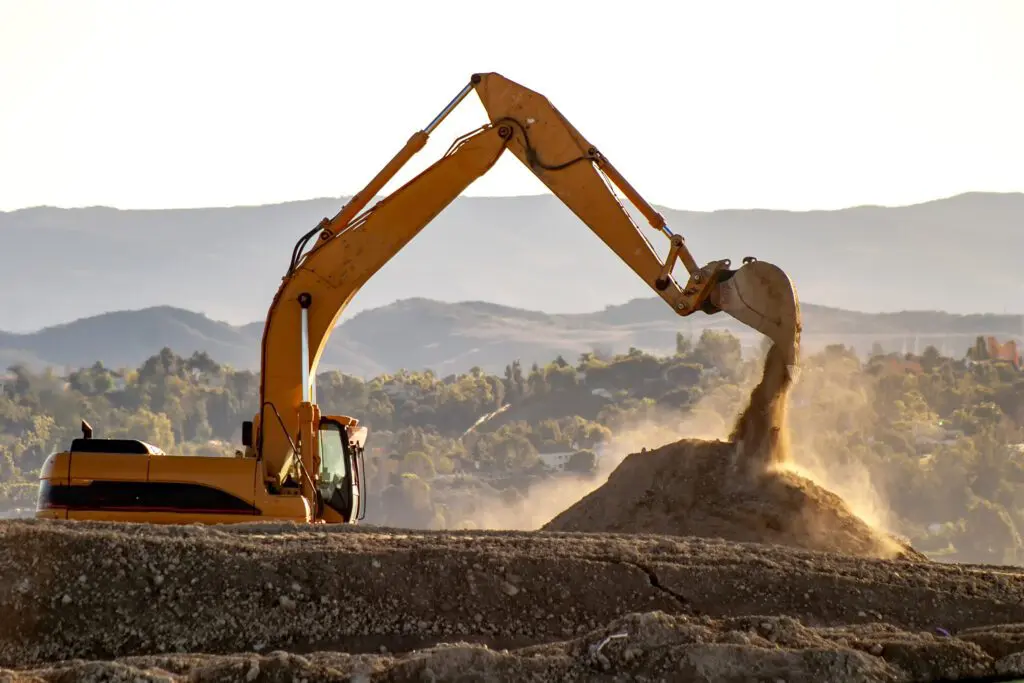3-minute read
Imagine this: you’re managing an excavation project when a backhoe accidentally hits a buried fuel line, sending diesel fuel spilling into the surrounding soil. Cleanup costs start piling up, and you’re facing potential fines on top of it all.
Or, during a demolition, airborne contaminants like asbestos or dust particles drift into a nearby neighborhood, causing health concerns and leaving you liable for medical bills and property damage.

In another scenario, a subcontractor improperly disposes of hazardous waste, leading to local water contamination and a hefty cleanup bill.
These are the kinds of situations where pollution insurance becomes invaluable, covering incidents that standard policies often exclude. For general contractors and subcontractors, job sites come with unique risks, and pollution is one that’s frequently overlooked. From large-scale construction projects to smaller renovations, pollution incidents can have a substantial financial impact, making pollution insurance a smart investment for those in construction.
Why Pollution Insurance Matters in Construction
Pollution risks are more common on job sites than many contractors realize. Any construction project involving hazardous materials, waste disposal, or even heavy machinery has the potential to create environmental issues. From accidental spills to airborne contaminants, these incidents can lead to property damage, bodily injury, and regulatory fines.
Without pollution insurance, contractors may find themselves facing lawsuits, cleanup costs, and hefty fines. Pollution incidents often don’t fall under standard general liability policies, which is why pollution insurance is so crucial.
What Does Pollution Insurance Cover?
Pollution insurance is specifically tailored to address the risks associated with environmental incidents on job sites. Here are some of the key coverages it typically includes:
- Cleanup Costs: Pollution incidents often require immediate cleanup to prevent further environmental damage. This coverage helps cover the costs of removing contaminants, whether they’re in the soil, water, or air.
- Third-Party Bodily Injury and Property Damage: If a pollution incident affects people or property nearby, this coverage helps protect against lawsuits and compensates for damages.
- Transportation Coverage: Moving hazardous materials or waste from one location to another comes with its own set of risks. Pollution insurance can cover incidents that occur during transportation, such as spills or leaks.
- Legal Defense Costs: Pollution incidents frequently lead to legal action. This coverage helps cover legal defense costs if your company faces lawsuits related to pollution claims.
Protecting Your Business with Pollution Insurance
For general contractors and subcontractors, pollution insurance is more than just an optional extra — it’s essential protection against the unexpected. With the right pollution insurance in place, you’re not only protecting your business financially but also demonstrating a commitment to environmental responsibility. Construction projects are complex, and by covering pollution risks, you’re better prepared for any curveballs the job site might throw your way.
The Mahoney Group, based in Mesa, Ariz., is one of the largest independent insurance and employee benefits brokerages in the U.S. For more information, visit our website or call 877-440-3304.
This article is not intended to be exhaustive, nor should any discussion or opinions be construed as legal advice. Readers should contact legal counsel or an insurance professional for appropriate advice.
